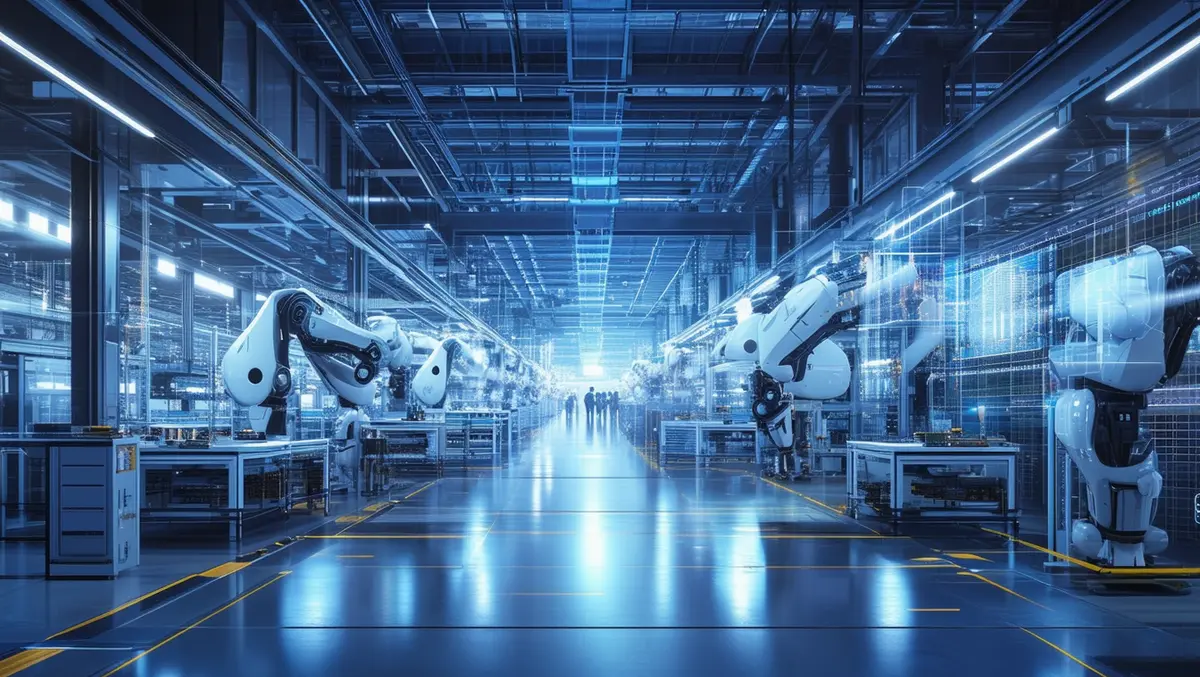
LG expands smart factory initiative, targets multi-trillion KRW by 2030
LG Electronics is expanding its smart factory solutions business by integrating artificial intelligence and digital transformation with the company's long-standing expertise in manufacturing and production, built over the past 66 years.
Earlier this year, LG launched its smart factory solutions business. The Production Engineering Research Institute (PRI), which has traditionally focused on enhancing production and manufacturing competitiveness for LG Group affiliates, is now offering services to external clients. These services include production consulting, development of equipment and operation systems, and technology personnel training.
Despite being in its first year, PRI's smart factory solutions business has already achieved significant milestones. PRI expects to secure orders worth approximately KRW 200 billion (AUD $215,115,411) from external clients. Major clients include secondary battery manufacturers, automotive parts manufacturers, and logistics companies. LG plans to expand into industries with increasing factory demand, such as semiconductors, pharmaceuticals, biotechnology, and food and beverage. The goal is to grow the smart factory solutions business into a multi-trillion KRW enterprise by 2030, excluding revenue generated within the LG Group. According to Precedence Research, the global smart factory market is projected to grow from USD $155.61 billion (AUD $231.36 billion) this year to USD $268.46 billion (AUD $399.14 billion) by 2030.
Over the past decade, LG has accumulated 770 terabytes of manufacturing and production data, owing to its extensive history in factory design, construction, and operation. The company has also filed over 1,000 patents related to smart factory solutions. LG's smart factory solutions focus on integrating production data with AI and digital transformation technologies, offering production system design, monitoring, and operation through Digital Twin technology. Other services include big data and generative AI-based management of quality, industrial safety, and equipment, alongside the provision of various industrial robots.
Enhancing production efficiency is crucial for business profitability. LG's refrigerator production line in Changwon, South Korea, produces a unit every 13 seconds. A 10-minute delay could result in a production shortfall of 50 refrigerators, translating to a loss of AUD $100,000, assuming one refrigerator costs AUD $2,000. LG's smart factory solutions aim to minimise such delays, optimising processes from component supply to assembly, packaging, and inspection.
LG's approach to smart factory solutions is comprehensive, covering the entire journey for clients from factory planning to design, construction, and operation. The company diagnoses existing factories and identifies areas for improvement, establishing a step-by-step roadmap that considers automation, informationisation, and intelligence perspectives.
The production system design and operation solutions use real-time simulations via Digital Twin technology. This creates a virtual replica of the factory before construction, allowing clients to preview production and logistics flow, thereby optimising factory design. During the operational phase, real-time data analysis helps detect bottlenecks, defects, and malfunctions in the production line, contributing to productivity improvements.
LG offers industrial robot solutions for factory automation, including Autonomous Mobile Robots (AMRs) equipped with cameras, radar, and LiDAR sensors to navigate and supply parts and materials. Mobile Manipulators (MMs), combining multi-joint robotic arms with AMRs, can automate tasks like assembly, defect inspection, and transporting parts and materials. MMs can also replace the batteries of nearby AMRs when they run low.
Generative AI solutions assist in managing yield rates and ensuring equipment operates smoothly. Sensors detect abnormal signals like vibrations and noise, and big data analysis determines the causes and recommends corrective actions. Generative AI, based on large language models, allows for easy use through voice commands. LG has also developed a Vision AI-powered real-time detection system that learns normal operating conditions to detect anomalies and enhance factory safety management.
Jeong Dae-hwa, head of LG PRI, stated, "We will offer optimal smart factory solutions at every stage – from planning and design to construction and operation – becoming the ideal partner that supports our clients throughout their entire production journey."


